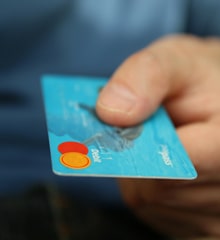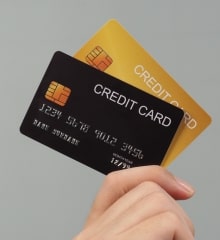For more than two decades, DebtStoppers Bankruptcy Law Firm, has fought against unfair parking ticket policies. We have made considerable strides in advocating for fair policies, taking our fight all the way to the United States Supreme Court with the case, City of Chicago v. Fulton, 141 S. Ct. 585 (2021). After years of relentless efforts, we are proud to be part of the change that brings relief to the residents of Chicago dealing with unpaid parking tickets.

Understanding the Consequences of Unpaid Parking Tickets
Failing to address parking tickets in Illinois can lead to various consequences including:
-
Unpaid parking tickets typically accrue additional fines and penalties over time if left unresolved. The longer the tickets remain unpaid, the higher the total amount owed may become due to late fees and other charges.
-
In some cases, your vehicle may be booted or towed, and you would be responsible for paying additional fees to have it released.
-
Persistent failure to pay parking tickets and related fines can result in the suspension of your Illinois driver's license.
-
Unpaid parking tickets can also result in a hold being placed on your vehicle registration, which means that you may be unable to renew your vehicle registration until the outstanding tickets are paid.
-
Delinquent parking tickets may be reported to credit bureaus, potentially impacting your credit score.
-
If parking tickets remain unpaid despite repeated notices and warnings, municipalities in Illinois may take legal action to enforce payment by filing a lawsuit against you to collect the unpaid fines and penalties, which may result in additional legal expenses and court proceedings.
Overall, unpaid parking tickets can lead to a range of consequences that can impact your finances, driving privileges, and legal standing. To avoid additional complications and penalties, it is wise to address parking tickets promptly by paying the fines or exploring other resolution options.

How to Pay Unpaid Parking Tickets in Illinois
Consider the following steps:
Gather Information on Unpaid Parking Tickets
To address your unpaid parking tickets, start by gathering essential details such as citation number, date of the violation, and total amount due. Also, familiarize yourself with the penalties and late fees associated with each ticket.
Verify Ticket Details and Penalties
After collecting all the necessary details, ensure to verify each ticket and the associated penalties. This verification process involves confirming the violation date, the total amount owed, and the accrued late fees or penalties.
Explore Payment Options for Unpaid Parking Tickets
You can pay unpaid parking tickets in Illinois in several ways including online, in-person, by mail, or by phone.
Online Payment Methods for Unpaid Parking Tickets
You can pay your parking tickets online using credit or debit cards. Most municipalities provide a secure and convenient way to pay your fines online. Information to pay the fine is typically provided on the back of the parking ticket.
In-Person Payment Options for Unpaid Parking Tickets
If you prefer to pay in person, visit a payment center and make sure to bring your parking ticket or notice of violation.
Paying by Mail or Phone for Unpaid Parking Tickets
You may also choose to pay by mail or over the phone. Make sure to follow the instructions provided on the back of the ticket.
Payment Plan Options for Unpaid Tickets
If the outstanding fines are too high to pay at once, consider enrolling in a payment plan. Most jurisdictions allow residents to pay their fines over time through manageable installments.
Handling Unpaid Parking Tickets in Court
If you choose to challenge your parking ticket or if your situation has led to court proceedings, it is essential to seek legal advice.
Consulting Legal Advice for Unpaid Parking Tickets
Legal professionals, such as those at DebtStoppers, can help you navigate the intricacies of parking ticket laws, payment plans, and potential defenses in court.
Bankruptcy Alternatives
In the face of such challenges, we at DebtStoppers have advocated for a more humane approach to unpaid parking tickets fines. We have fought hard for the last 20 years to help shape an alternative solution in the City of Chicago through the City’s Fresh Start Program.
This program offers a lifeline to people who are burdened by excessive parking ticket debts. In essence, any tickets that are more than three years old will be forgiven upon receiving a Chapter 7 discharge. If the tickets are less than three years old, the city now offers a payment plan for 36-60 months depending on the amount of the tickets.
ProPublica investigative reporters recently uncovered the disparate effects of Chicago’s parking and red-light ticketing system on low-income communities of color. Responding to these findings, the Chicago City Council amended the municipal code to provide an additional option to discharge these debts and obtain lasting relief from Chicago tickets.
Since 2019, people filing Chapter 7 bankruptcy can erase their ticket debt if they meet certain qualifications. The Fresh Start Program provides Chapter 7 bankruptcy filers with the opportunity to pay only the initial fine amount for tickets that were incurred in the three years immediately before the bankruptcy filing date and up to the date of enrollment in the program.
Upon completion of the “fresh start” plan and receiving a Chapter 7 discharge, all unpaid parking, standing, compliance, and red-light camera tickets older than 3 years as of the date of your bankruptcy filing and all penalties (including late payment penalties), fees, and costs associated with these tickets will be forgiven.
If the City of Chicago has already repossessed your car or you cannot afford your newer tickets, you can also file a Chapter 13 bankruptcy to recover your car and eliminate the tickets. The debt relief brought by the Fresh Start Program and the option to file a Chapter 13 to recover a repossessed car are significant strides in our fight for just policies, bringing much-needed relief to the residents of Chicago dealing with unpaid parking tickets.





